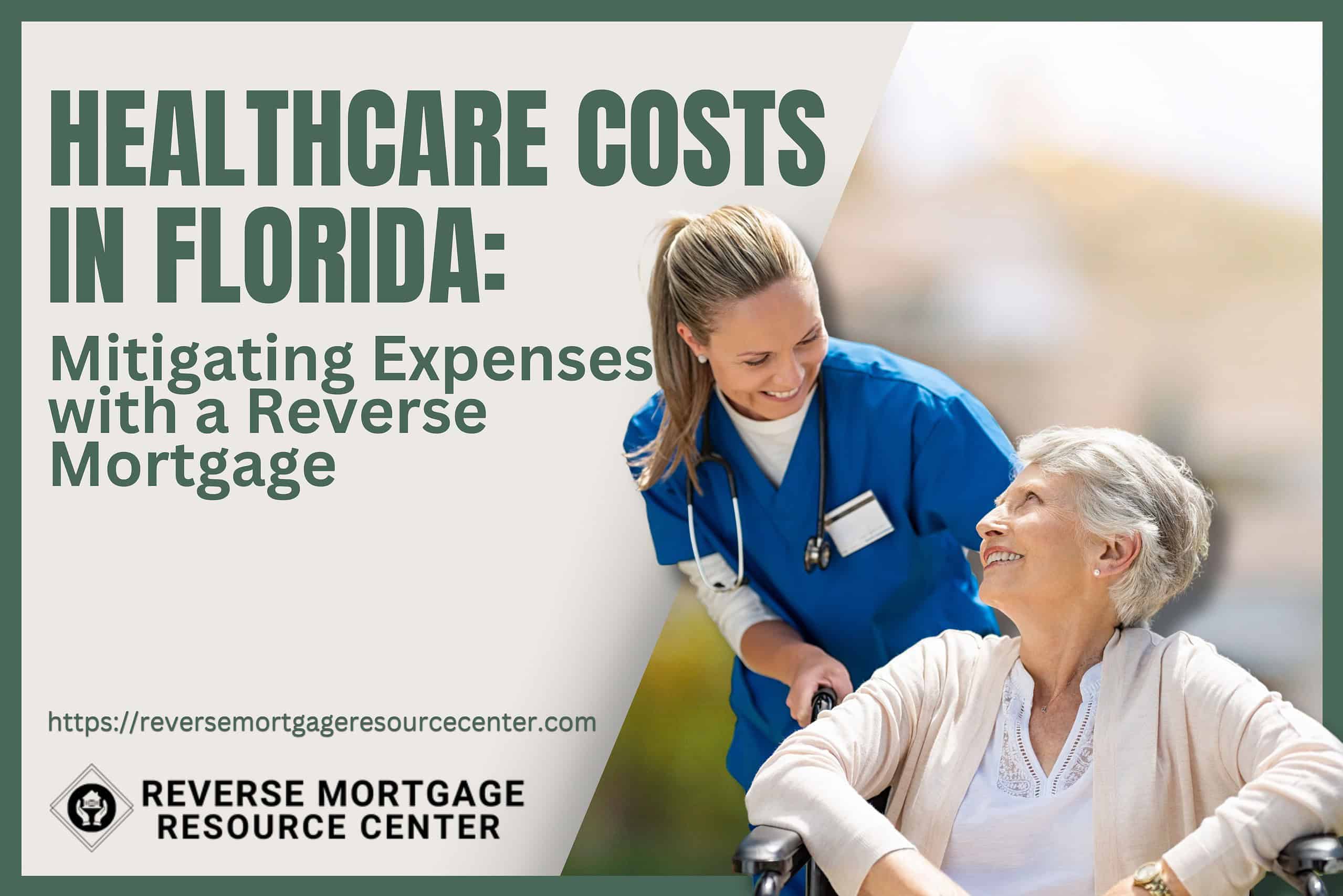Healthcare Costs in Florida: Mitigating Expenses with a Reverse Mortgage
The rising healthcare expense in the United States is a major issue for many Americans, especially acute in Florida. The Sunshine State presents particular problems in guaranteeing inexpensive and accessible healthcare for its inhabitants, owing to its huge retiree population and a healthcare system that boasts some of the most advanced medical facilities in the country. In this article, we will look at the issue of healthcare expenditures in Florida and how a reverse mortgage can be a feasible option for helping to cover these costs.
The Healthcare Challenge in Florida
Florida is known for its beautiful beaches, pleasant weather, and dynamic culture, making it an appealing retirement location. As a result, the state has a sizable senior citizen population, with many living on fixed incomes. While this demographic transition benefits Florida in many ways, it also poses a huge problem regarding healthcare expenses.
Rising Healthcare Costs
Like the rest of the country, healthcare expenses in Florida have been steadily rising. Kaiser Family Foundation data shows that the state’s healthcare costs have steadily risen over the last decade. Insurance premiums, prescriptions, doctor’s visits, hospital stays, and long-term care are all part of the rising expenditures. Healthcare costs are a perennial source of anxiety for Floridians, particularly those on fixed incomes, such as seniors.
Impact on Retirees
When it comes to healthcare bills, retirees frequently face a double-edged sword. They are faced with rising healthcare costs at a time when their income is typically fixed or decreasing. Many retirees may be forced to make difficult decisions due to financial constraints, such as cutting back on healthcare services, medications, or critical living expenses such as housing and sustenance. Many Florida retirees are concerned about depleting their retirement savings for healthcare.
The Role of Reverse Mortgages
Using reverse mortgages is one potential solution that can assist in reducing the financial strain of healthcare bills in Florida. A reverse mortgage is a financial product that allows homeowners to convert a portion of their home equity into tax-free funds without selling their homes, moving, or taking on new monthly mortgage payments.
What Is a Reverse Mortgage?
A reverse mortgage, or a Home Equity Conversion Mortgage (HECM), is a federally guaranteed loan program for homeowners aged 62 and up. It allows them to access a portion of the equity in their houses accumulated over time to supplemental income. The borrower keeps ownership of their home, and loan repayment is often postponed until the homeowner moves out, passes away, or sells the property.
Mitigating Healthcare Costs
Reverse mortgages can be a strong tool for Florida seniors burdened by excessive healthcare bills. Here’s how they can assist:
1. Supplement Income
A reverse mortgage gives the homeowner an initial lump sum, monthly disbursements, or a line of credit depending. These funds can be used to meet healthcare costs without jeopardizing other vital necessities.
2. Eliminate Mortgage Payments
Many Florida retirees still have mortgage payments. Homeowners can utilize the proceeds from a reverse mortgage to pay down their existing mortgage, removing this monthly financial load and freeing up more income for healthcare needs.
3. Flexibility in Fund Use
Reverse mortgage funds can be used as needed. They can be used for prescriptions, doctor visits, medical procedures, or long-term care. The adaptability of a reverse mortgage enables seniors to retain their standard of living.
4. No Income or Credit Score Requirements
Income or credit scores are not used to qualify for a reverse mortgage. This means that seniors with low income or poor credit can still qualify. The major requirement is that the homeowner be at least 62 years old and have adequate property equity.
5. No Repayment Until the Home Is Sold
One of the most appealing aspects of a reverse mortgage is the lack of monthly payments. The loan is only repaid when the homeowner sells the house, moves out, or passes away. This ensures that the cash can be used for healthcare needs without worrying about immediate payback.
Potential Drawbacks
While reverse mortgages can be a significant resource for reducing healthcare expenditures in Florida, it is critical to be aware of and carefully analyze the following potential drawbacks:
1. Impact on Inheritance
Because a reverse mortgage is repaid through the sale of a home, it might diminish the inheritance given to heirs. It is critical to balance this against the immediate financial respite provided.
2. Fees and Costs
Fees and closing costs are connected with reverse mortgages, which might reduce the total amount accessible to applicants. It’s critical to understand these costs and include them in your selection.
3. Impact on Medicaid Eligibility
Receiving a lump-sum disbursement from a reverse mortgage could affect eligibility for Medicaid, a government program that helps low-income people pay for healthcare. Before proceeding, seniors should evaluate the potential impact on their eligibility.
Counseling and Safeguards
Federal requirements require that borrowers obtain counseling from a HUD-approved counselor to ensure that seniors fully grasp the implications of a reverse mortgage. These measures are intended to protect seniors’ interests and assist them in making informed decisions.
The Decision-Making Process
Before considering a reverse mortgage to help with healthcare bills in Florida, it’s critical to go through the following steps:
1. Financial Assessment
Examine your financial condition, including your healthcare bills and current sources of income. This will assist you in determining how much additional money you will require to cover your healthcare bills.
2. Counseling
Recognize that counseling is required and can bring helpful insights. Counselors can assist you in navigating the complexities of a reverse mortgage and considering other options.
3. Consultation
Consult with reverse mortgage financial gurus and legal professionals to assist you in making an informed decision based on your specific circumstances.
4. Comparison
Compare the benefits of a reverse mortgage to alternatives for covering healthcare bills, such as Medicaid, Medicare, long-term care insurance, or personal savings.
5. Proceed with Caution
Proceed with caution when determining if a reverse mortgage is the appropriate option for you. Ensure you engage with a trustworthy lender and completely grasp the loan’s terms and restrictions.
REVERSE MORTGAGE RESOURCE CENTER ~LIVE LIFE ON YOUR TERMS~
Our Lending Team has been serving our clients since 2004. We are passionate about serving our clients with integrity to help them achieve their financial goals.







